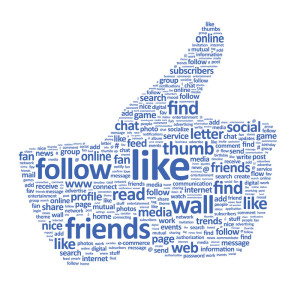Chances are you are on Facebook. More than 2 billion people around the world are active monthly users. I joined in 2006 because my brother said he wouldn’t send pictures of his first grandchild by email  anymore – I could see them on Facebook instead. I joined. And then I soon figured out it was a great way to keep in touch with family and friends around the country.
anymore – I could see them on Facebook instead. I joined. And then I soon figured out it was a great way to keep in touch with family and friends around the country.
I have always been suspicious of apps that I could sign into through Facebook. I didn’t want uncontrolled data sharing. I did not answer the many Facebook quizzes; I had heard someone say that the answers were probably building a profile on you for who knows what purpose.
I sometimes check out a sponsored ad if the product really grabs my attention, but I rarely purchase it. It’s an online shopping/browsing thing like looking at catalogs that still come in the mail.
I am vocal about my politics in my original posts, my likes, comments and shares of other posts. And I have joined certain private groups that share my politics. So yes, somewhere there is a profile on me and my politics.
On Twitter, I try to maintain a professional presence as much as possible and leave politics for my Facebook circle instead. I have read so much about online harassment of women on Twitter, and we do have a President who appears to be the cyberbully-in-chief.
With the latest exposure that Cambridge Analytica used Facebook data on 50 million Americans to influence the 2016 election, I am questioning how we can protect our personal information yet continue to utilize social media platforms and all the good they bring: keeping families and friends in touch or accelerating social movements around important issues. For example, The March For Our Lives this Saturday, March 24th in many cities has been organized through social media in just 5 weeks.
Mark Zuckerberg’s March 21st statement on Facebook helps us start to understand the steps the social media giant has taken in the past and will take in the future. But it is just the beginning. Much more information is needed. The story of what happened, how it happened, and how Facebook will ultimately need to make changes is just beginning. And there are far greater issues here around data privacy and security in our social media connected world of 2018.
A LinkedIn post from Sara Holoubek, CEO and founder of Luminary Labs, warns that we must be mindful of unintended consequences as we continue to advance technologies. Sara’s consulting firm develops strategies and innovation systems to help Fortune 500, government, and nonprofit organizations thrive in the face of change. Her post is worth noting here:
“Between the Facebook/Cambridge Analytics affair to a self-driving Uber killing a pedestrian, it’s time to admit that we are not ready for the world we have programmed. So how did we get here? It’s not as if we are completely unaware of potential consequences. Science fiction and even animated films such as The Incredibles (2004) and Wall-e (2008) imagined the self-learning machine out of control and the world that eats itself up. But the problem with science & technology is that it is nearly impossible to go backwards. So why do we insist on moving faster and faster? Innovation – the kind that improves life for all humans – is a long game. So yes, keep inventing, breaking, and making. But be mindful of unintended consequences and be willing to forgo the quick buck today if it means a more sustainable world for future generations. Short-termism is bad for the economy. And it’s even worse for people.”
As a healthcare CIO, I have dealt with privacy and security issues – that sacred trust healthcare organizations and patients must have to protect their information. At times, the deployment of new technologies has had to take a pause or be slowed down to ensure we get it right.
There may be similar implications at a much larger scale with the social media platforms we have all learned to take for granted.

Megan on said:
Sue,
Thank you for addressing this issue. Very insightful and timely as always.
Sue Schade on said:
Megan, thanks for the feedback. Much more to come on this story in the weeks ahead.
Rich Pollack on said:
Hi Sue, Like you I rely on Facebook to keep up with my Daughter and her family (2 grandsons) in Syracuse and a few friends.
A few years after Facebook first started, my daughter was so excited, as she found and reconnected with dozens of high school and college friends. That, in turn, got me excited and when she subsequently came down for a visit, she decided to help me find my long lost high school and college chums.
Lo and behold, after 2 hours of fruitless trying, she concluded “Sorry, Dad, seems your generation is just not on-line”. Que, bring in my wheelchair. 🙂
Like you, I am very concerned with privacy and security and have recently spent some time on Facebook re-visiting the myriad configurations that dictate access and sharing.
Progress forward has always come with unexpected impacts that had to be addressed over time.
But who, other than those reactionary politicians and their frightened and shrinking core of supporters, wants to go backwards. It’s why I’ll always be a proud progressive.
Sue Schade on said:
Rich, great story as well. We can’t bury our heads in the sand or go backwards on technology. But we can be cautious and make sure we’re using it well.